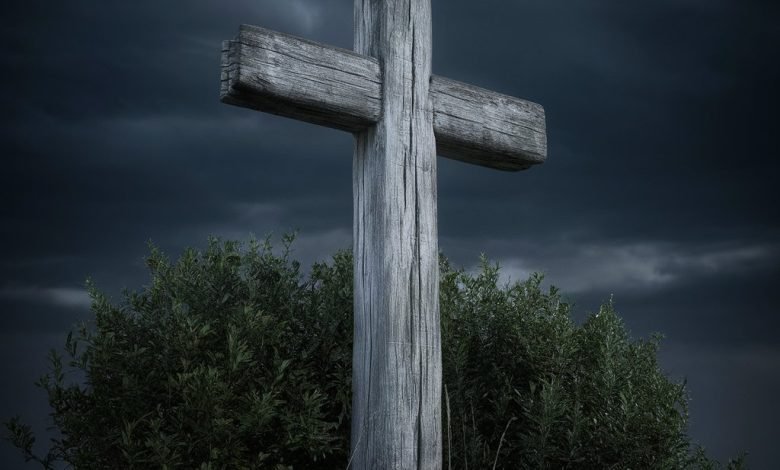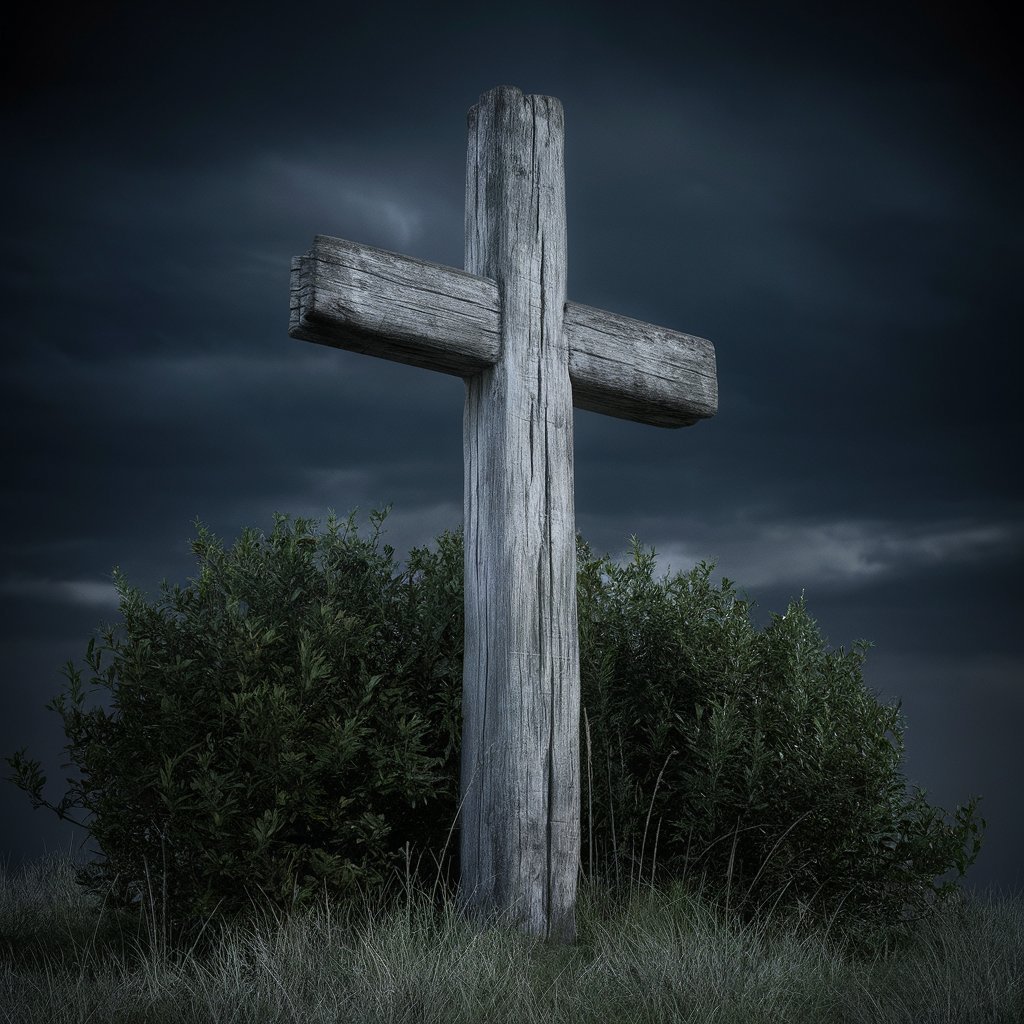
What is the Athanasian Creed and what is its significance؟
The content of the Athanasian Creed emphasizes the affirmation of the Trinity, where all members of the Godhead are considered uncreated, co-eternal, and of the same essence. In affirming the Trinity, the dual nature of Christ becomes of central importance.
فرست محتوا
Who was Athanasius?
“Quicunque vult” – this phrase is the title given to what is commonly known as the Athanasian Creed. For centuries, this creed was attributed to Athanasius, the great defender of Trinitarian orthodoxy during the Arian heresy crisis of the fourth century.
That theological crisis focused on the nature of Christ and led to the formulation of the Nicene Creed in 325 AD. Although Athanasius was not the author of the Nicene Creed, he was its primary champion against the blasphemers who followed Arius. Arius claimed that Christ was a superior being but less than God.
Athanasius died in 373 AD, and the epitaph on his tombstone is now famous because it encapsulates the essence of his life and service. It simply reads: “Athanasius against the world.” This great Christian leader was exiled several times due to his steadfast belief in Trinitarian orthodoxy.
While the name “Athanasius” has been attached to this creed over the centuries, modern scholars are convinced that the Athanasian Creed was written after Athanasius’s death. The theological influence of Athanasius is present in the creed, but he is unlikely to be its author.
Read more : Forty days and forty nights in the Bible and its significance in the modern era

Why is understanding the Athanasian Creed important?
The content of the Athanasian Creed emphasizes the affirmation of the Trinity, where all members of the Godhead are considered uncreated, co-eternal, and of the same essence. In affirming the Trinity, the dual nature of Christ becomes of central importance. As the Athanasian Creed in one sense reaffirms the doctrines of the Trinity that were expressed in the fourth century at Nicaea, it likewise echoes the strong emphases of the Council of Chalcedon in the fifth century.
The Arian Heresy
As the church battled the Arian heresy in the fourth century, the fifth century gave rise to the Monophysite heresies that reduced the person of Christ to a single nature, that is, a God-man nature that was neither fully divine nor fully human.
The Nestorian Heresy
At the same time the church was fighting the Monophysite heresy, it also combated the opposing view, Nestorianism, which sought not to blend or mix the two natures but to separate them, concluding that Christ had two natures and therefore two persons, one human and one divine.
The Church’s Response to Both Heresies
Both Monophysite and Nestorian heresies were clearly condemned at the Council of Chalcedon in 451, where the church reaffirmed the orthodox faith that Christ, the second person of the Trinity, is truly man (vere homo) and truly God (vere deus). It also declared that the two natures coexist in their unity without mixture, confusion, separation, or division, and in which each nature retains its own attributes.
Affirmation of the Trinity by the Athanasian Creed
The Athanasian Creed reaffirms the distinctions found in Chalcedon, where in the language of Athanasius, Christ is called “perfect God and perfect man.” All three members of the Trinity are considered uncreated and thus co-eternal. It also follows previous affirmations that the Holy Spirit proceeds from both the Father and the Son.
Finally, the Athanasian Creed scrutinizes the incarnation of Jesus and affirms that in the mystery of the incarnation, the divine nature did not transform or convert into the human nature, but the unchanging divine nature took on the human nature. In the incarnation, the divine nature assumed human nature, not that the divine nature transformed into the human nature.
The Athanasian Creed is considered one of the four authoritative creeds of the Roman Catholic Church and succinctly reiterates what must be believed for salvation. Although the Athanasian Creed does not receive much publicity in Protestant churches, the orthodox doctrines of the Trinity and the incarnation are affirmed by almost all historic Protestant churches.

The Text of the Athanasian Creed
Whoever wants to be saved should above all cling to the catholic faith. Whoever does not guard it whole and inviolable will doubtless perish eternally. Now this is the catholic faith:
That we worship one God in Trinity and Trinity in Unity, neither confusing the persons nor dividing the substance. For the person of the Father is a distinct person, the person of the Son is another, and that of the Holy Spirit still another. But the divinity of the Father, Son, and Holy Spirit is one, their glory equal, their majesty coeternal.
Whatever the Father is, the Son is, and so is the Holy Spirit. The Father is uncreated, the Son is uncreated, the Holy Spirit is uncreated. The Father is immeasurable, the Son is immeasurable, the Holy Spirit is immeasurable. The Father is eternal, the Son is eternal, the Holy Spirit is eternal. And yet there are not three eternal beings; there is but one eternal being. So too there are not three uncreated or immeasurable beings; there is but one uncreated and immeasurable being.
Similarly, the Father is almighty, the Son is almighty, the Holy Spirit is almighty. Yet there are not three almighty beings; there is but one almighty being. Thus, the Father is God, the Son is God, the Holy Spirit is God. Yet there are not three gods; there is but one God. Thus, the Father is Lord, the Son is Lord, the Holy Spirit is Lord. Yet there are not three lords; there is but one Lord.
As Christian truth compels us to acknowledge each person individually as both God and Lord, so catholic religion forbids us to say that there are three gods or lords. The Father was neither made nor created nor begotten from anyone. The Son was neither made nor created; he was begotten from the Father alone. The Holy Spirit was neither made nor created nor begotten; he proceeds from the Father and the Son.
Accordingly, there is one Father, not three fathers; one Son, not three sons; one Holy Spirit, not three holy spirits. Nothing in this Trinity is before or after, nothing is greater or smaller; in their entirety, the three persons are coeternal and coequal with each other. So in everything, as was said earlier, we must worship their Trinity in their unity and their unity in their Trinity.
Anyone then who desires to be saved should think thus about the Trinity. But it is necessary for eternal salvation that one also believe in the incarnation of our Lord Jesus Christ faithfully.
Now this is the true faith:
That we believe and confess that our Lord Jesus Christ, God’s Son, is both God and human, equally. He is God from the essence of the Father, begotten before time; and he is human from the essence of his mother, born in time; completely God, completely human, with a rational soul and human flesh; equal to the Father as regards divinity, less than the Father as regards humanity. Although he is God and human, yet Christ is not two, but one. He is one, however, not by his divinity being turned into flesh, but by God’s taking humanity to himself.
He is one, certainly not by the blending of his essence, but by the unity of his person. For just as one human is both rational soul and flesh, so too the one Christ is both God and human. He suffered for our salvation; he descended to hell; he arose from the dead; he ascended to heaven; he is seated at the Father’s right hand; from there he will come to judge the living and the dead. At his coming all people will arise bodily and give an accounting of their own deeds. Those who have done good will enter eternal life, and those who have done evil will enter eternal fire.
This is the catholic faith:
One cannot be saved without believing it firmly and faithfully.


